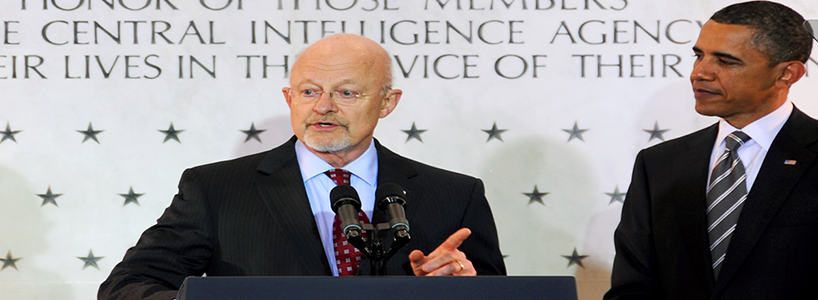Our presidential elections have been divisive. Understatement of the year? The Decade? No matter your personal political leanings, you’re a cleared professional, one of the millions of professionally apolitical people entrusted, to one extent or another, with our nation’s most sensitive information. That’s information related to what we have the capacity to do when it comes to military operations, to clandestine operations, to cyber operations, and more. It’s also information about what we cannot do along those same lines. And it’s information about what we’re trying to accomplish.
Besides all that, many of you, our nation’s legions of cleared professionals, have not only a privileged, intimate understanding of how world leaders—including our own—think, act, and imagine the future, but also a global context for those understandings that relatively very, very few have. Finally, many of you have an analytical knack for surveying inordinate amounts of intelligence information and drawing analytical conclusions that may inform the political, financial, and military decisions of our elected leaders.
You’re the people in the discussion whom retired CIA Director Michael Hayden described to Rachel Martin on NPR this morning as “the fact-based guys.” You and the work you do as cleared professionals is a national treasure.
CENTER STAGE
Our nation’s intelligence apparatus works and the mysterious ways it works has been front-page news since . . . since there have been front-pages (both paper and web). Now, the role of national intelligence is not only front-page, but center stage. Intelligence agencies and professionals are pitted against one another in their assessments, which is always good for analysis. What perhaps is not so good is that all this is unfolding on the international stage during this risky period of presidential transition that we’ve considered previously.
TRANSITION INTELLIGENCE
The Atlantic contributor Rebecca Friedman Lissner offers some context for the invaluable role of excellent intelligence during the course of presidential transitions. In “An Easy Way to Avoid Foreign Policy Mishaps,” Lissner writes, “Coming every four to eight years, the transition of power between presidents represents the most acute period of vulnerability for the United States. . . . The risks of neglecting the intelligence aspect of preparation for the presidency are grave. History shows numerous examples of failed crisis management during presidential transitions.” Lissner recalls four times in recent history when transition intelligence was especially relevant to seamless transitions and particularly important to national and international policy and decision-making.
FOUR EXAMPLES
The Bay of Pigs catastrophe is one example. President Eisenhower initiated the Bay of Pigs operational planning, and during the period of transition, “Eisenhower continued—and even accelerated—planning for a paramilitary operation to overthrow Castro.” According to Lissner’s account, President-elect Kennedy got little more than thumbnail sketches of the planned operations, yet “when Kennedy made the pivotal decision to authorize and accelerate planning for the Bay of Pigs operation eight days after taking office, he did so under tremendous pressure to continue an ongoing operation, with insufficient understanding of the plan itself, and with little support from aides.” We all know how that turned out.
When President Jimmy Carter took office, he apparently learned of secret transactions between the United States and Jordan by way of Washington Post. “Carter was understandably ‘distressed,’” Lissner describes, “that neither then-President Gerald Ford, Secretary of State Henry Kissinger, nor CIA Director George Bush had disclosed the program during the transition . . . .” Nonetheless, Carter failed to inform President Reagan of American-Israeli plans to strike Iraqi nuclear reactors because of the threat they posed to Israel . . . not something too easy to forget, but the message was never passed. And President George W. Bush was caught unaware of substantial no-fly-zone strikes against Iraq leftover from Desert Storm.
POLITICS NOT NECESSARILY AS USUAL
Director Hayden calls these current heated debates, criminations, and recriminations about national intelligence and foreign policy “unchartered territory.” Not really, as Lissner demonstrates. We’ve seen intelligence wrinkles during transition before—though not necessarily so public—and we’ll likely see it again in future presidential transitions. What’s important is that cleared professionals take the high ground of apolitical analysis to provide their best, most informed opinions when it comes to decision time.




